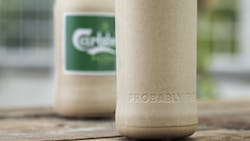Enough about the COVID-19 pandemic for a while! Let’s talk beer. In my opinion, a much more uplifting topic.
According to several sources, presumably sober at the time they wrote this, beer is the oldest recorded – think papyrus scrolls – recipe in the world, dating back to circa 5,000 BC (although the first brewski probably dates back ever farther, to Mesopotamia around 10,000 BC, when eating fermented porridge was found to cause a buzz). The Egyptians, according to their written records, produced an organic beer using dates and pomegranates, which were used in religious ceremonies under the direction of the Pharaoh. Antony’s Ale (think Antony and Cleopatra) soon migrated to Northern Europe, where barley was prevalent, and modern beer was born when German monks added hops, both for taste and as a preservative.
English brewers produced the ubiquitous IPA, with more alcohol and extra hops, so that it could make the journey to far-flung territories of the Empire in India and Burma. The British also introduced bottled beer sometime around the mid-16th century. Of course, hand-blown glass bottles of the time weren’t able to stand the pressure of the CO2 and corks became dangerous projectiles.
Fast forward to the 1800s, when beer was available both in bottles (now capable of handling the pressure) and in buckets. The so-called growler, supposedly named for the sound of the CO2 venting from a 2-quart galvanized pail (or some say from the customer who growled at the bartender who was filling the pail with more foam than beer), gave way to waxed cardboard containers with lids in the 1950s, and then to plastic in the 1960s. Of course, not everyone wanted large growlers, so canned beer came into prominence right after Prohibition ended. Today, 32- and 64-ounce growlers, in cans and bottles, are still available for those with a large thirst, but no budget for a beermizer or kegerator.
Now, "it's deja vu all over again," as Yogi Berra famously said. Avantium, a Dutch biochemical company, has introduced a sustainably grown plant-based plastic that can be used to line a cardboard bottle. Suitable for beer and carbonated non-alcoholic beverages, the product is being studied by such well-known brands as Carlsberg, Coke, and Danone. According to the manufacturer, the plant-based plastic would degrade in a year, unlike the petroleum-based plastics that last hundreds of years. For a company like Coca-Cola, which has been called the world’s worst plastic polluter, this could be a game changer. And don’t forget the Planters peanuts, available in 100% recyclable and BPA free containers.
Good! Now we can drink and snack both responsibly AND sustainably!
A regular contributor to HPAC Engineering and a member of its editorial advisory board, the author is a principal at Sustainable Performance Solutions LLC, a south Florida-based engineering firm focusing on energy and sustainability. Contact him at [email protected].
About the Author
Larry Clark
A member of HPAC Engineering’s Editorial Advisory Board, Lawrence (Larry) Clark, QCxP, GGP, LEED AP+, is principal of Sustainable Performance Solutions LLC, a South Florida-based engineering firm focused on energy and sustainability consulting. He has more than two dozen published articles on HVAC- and energy-related topics to his credit and frequently lectures on green-building best practices, central-energy-plant optimization, and demand-controlled ventilation.
